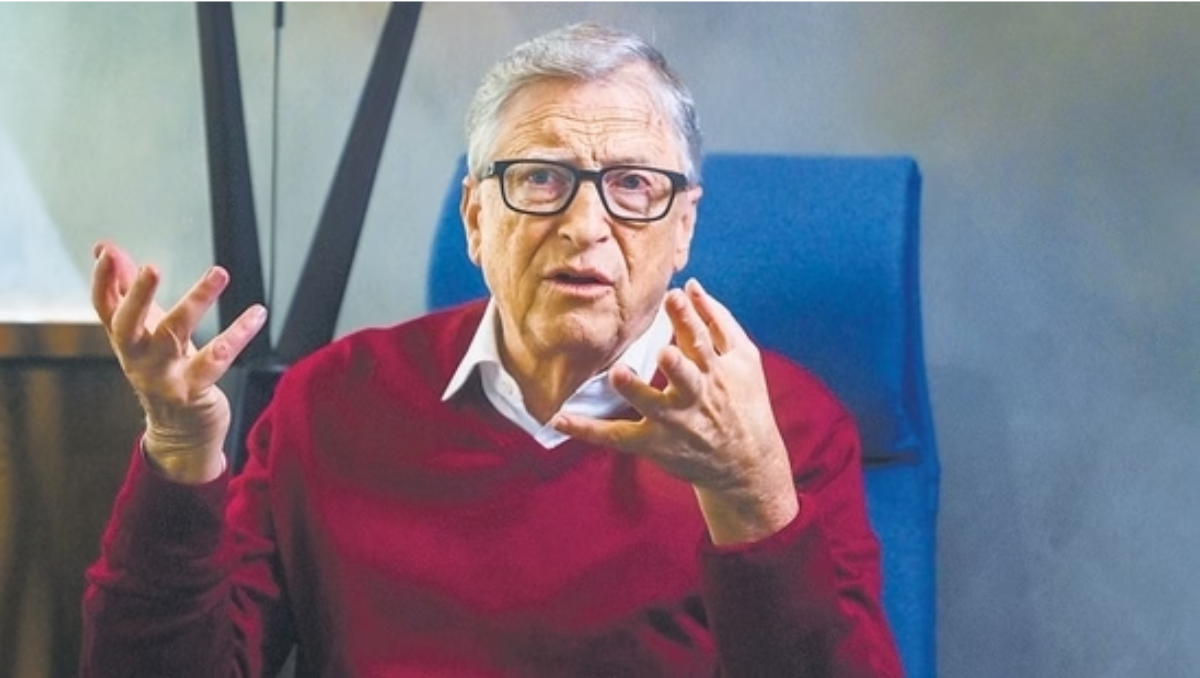Bill Gates, the Microsoft Co-Founder, declared, “Technology will not replace humans!” He thought it might allow for a three-day workday. He discussed his ideas with South African writer and comedian Trevor Noah during their conversation on their podcast, “What Now.”
When Noah questioned the 68-year-old Microsoft Co-Founder on the threat of intelligence to jobs, he expressed optimism that technology will free up labor for more productive tasks.
During the forty-five-minute chat, Gates discussed technology, his job, and the meaning of life. He claimed, Less work needs to be done. If you finally find yourself living in a society where your job necessitates working three days a week or something comparable, that’s probably okay too.
He drew parallels with generational shifts in labor, imagining a society where machines execute vital jobs, eliminating the need for labor-intensive human labor.
The billionaire described how his grandpa, who believed that farming was the only true employment, gave rise to a father who worked at several other jobs. He added that, in contrast to common opinion, only 2% of Americans are currently employed as farmers.
Gates argues that if technology advances at a reasonable pace and the government supports those who are having a hard time adjusting, then it can be good. He underlined how important it is to help people acquire new skills so that there is a seamless transition.
Things get more productive with the use of software. You know, eventually, if you free up human labor, you can help the elderly more effectively and have smaller class sizes. Even with the right skills, hard work is still required to achieve great things, he continued.
Gates envisioned a society in which labor-intensive jobs are handled by machines, freeing up people to work on more important projects. Drawing comparisons between generations, he showed how a wide variety of vocations have developed since farming was thought to be the only “real” work.
(Image Source : India Today)
Bill Gates stated in March of this year that he thinks Artificial Intelligence (AI) has the potential to revolutionize education. Hailed as a groundbreaking technological demonstration, he compared the development of ChatGPT to his introduction to the graphical user interface in the 1980s.
For the following ten years, he has been thinking about what artificial intelligence can accomplish.
Gates emphasized how crucial it is to give low-income countries and marginalized groups access to AI-driven capabilities. According to him, Artificial Intelligence (AI) can increase production, which will reduce class numbers and improve care for the elderly.
He declared that these AI-powered instruments had to be accessible to underprivileged countries and underrepresented groups.
Gates also mentioned the example of an LLM doing elementary mathematical mistakes to highlight the constraints in completely comprehending AI. The billionaire also voiced his worries about AI being exploited maliciously for things like cyberattacks and deepfakes as it gets smarter. He also discussed the dual nature of AI, noting that technology has the potential to both empower and divide people.
Gates has previously expressed his opinions on artificial intelligence. In a blog article spanning 4,00 words, he shared his thoughts on artificial intelligence and its benefits in March. He emphasized how AI has the power to completely transform a number of industries, most notably healthcare and education. Additionally, Gates drew comparisons between the development of the internet and microprocessors.
While highlighting AI’s potential to solve educational disparities, he had also acknowledged some of its concerns, including the possibility of misuse and factual errors.
